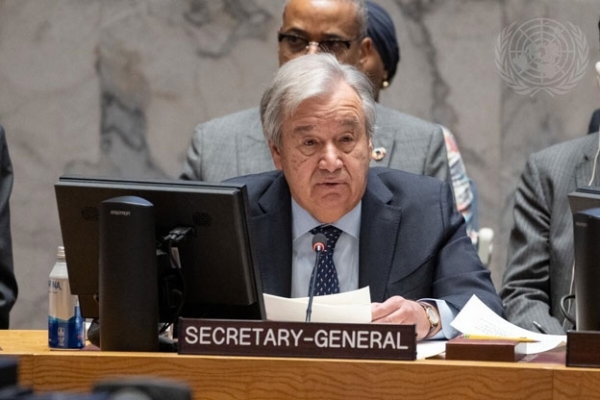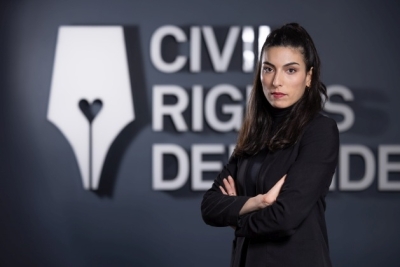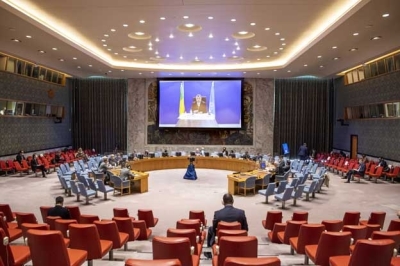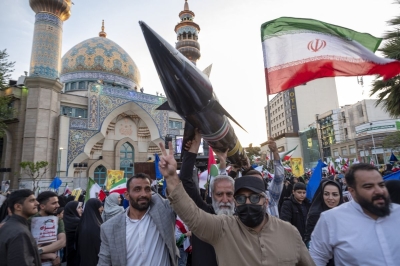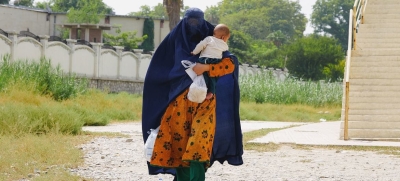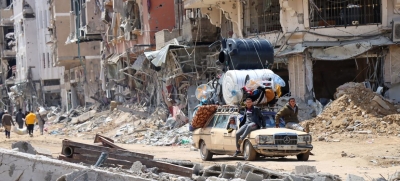UNITED NATIONS, Feb 12 (IPS) — The United Nations and its Member States are up against what the Secretary-General António Guterres calls existential challenges for the world, and they must be organized in taking a united approach to addressing these issues through ambitious plans and widespread reform.
In his statement to the General Assembly on February 7, 2024, Guterres laid out his priorities for the coming year, consisting of various ongoing issues that call for urgent action. He has called for member states to fulfill their obligations to the UN Charter, under which every person’s right to life and dignity should be guaranteed. But at present, governments are undermining the tenets of multilateralism with no accountability, he said.
The mechanisms in a multipolar world that would keep relations in check are not present, he added. “We are seeing the results: a dangerous and unpredictable free-for-all with total impunity,” he said. “…As conflicts proliferate, global humanitarian needs are at an all-time high, but funding is not keeping pace.”
When he spoke to reporters on February 8, 2024, he added: “When the world is divided and the geopolitical divides today are enormous, when we see that we are no longer in a bipolar or unipolar world, we are kind of on the way to a multipolar world, but in a very chaotic situation. Power relations became unclear. And what we see today in the world is political actors doing whatever they want and with total impunity.”
Since the previous year’s SDG Summit, calls have been made for major reforms, notably in the Security Council and in international financial architecture. Much has been said about the divisions within the Council that have prevented decisions from being made. In the context of the current war between Israel and Hamas, resolutions that would have called for a humanitarian ceasefire have not been passed due to those member states that did not vote in favor.
To that end, Guterres has said that the Council’s working methods must be updated in order to make and implement decisions, even where there is division. He added that the Council must also take steps to become more representative, noting that it was unacceptable that the African continent did not have a permanent seat in the Council.
In the context of international financing, Guterres remarked that the architecture was failing to provide all countries with the affordable finance needed to achieve shared goals. They do not provide the “basic function of providing a financial safety net for all developing countries,” he said. This has come as a way to address the ripple effect of disruptions in development and the global supply chain that have been caused by the compounding crises of the COVID-19 pandemic, climate-induced disasters, and conflicts.
The countries that would benefit most from stronger financial support in the current architecture are receiving the least of its benefits. Developing countries in particular have been hit hardest by the disruptions in the global economy, which Guterres noted will be addressed in the upcoming conferences for Small Island Developing States and Landlocked Developing Countries.
The Summit of the Future, which is scheduled to take place this September, is the hope that the international community will not only accelerate its efforts to meet its existing commitments but implement concrete measures to respond to present and emerging challenges. Guterres expressed that among the outcomes of the summit, what should emerge is a path forward “for a number of important transformations," understanding that the institutions are outdated and that what is needed is multilateralism that is more inclusive and reflects present realities.
In addition to proposing institutional reform, some of the intended outcomes from the Summit include accepting ANew Agenda for Peace, which outlines the Secretary-General’s vision for multilateral measures in peace and security. A Global Digital Compact was also proposed as a document that would, according to Guterres, “maximize the benefits of new technologies and minimize the risks”. This is pertinent when considering the public interest in artificial intelligence in recent years, and efforts that have been made within the tech sector and even in the UN through its AI Advisory Board to determine how to regulate it.
When it comes to climate change, Guterres stated that he would be “mobilizing the entire UN system to assist” to support member states to take action in addressing climate change through financing, among other plans of action. He called for expanding the channels for climate finance through innovative sources and for all countries to agree on their goals at COP29 this year. This must be of service to the countries “at the frontline of climate chaos”.
What the Secretary-General is asking—and has been asking for some time now—is ambitious reform while seeking urgent action. The Summit of the Future is one of the answers to the concerns raised in the previous year, when it was made clear that we were far off track in achieving the SDGs. What should have been markers of progress stand now as reminders of the work left to be done, and even regression in some cases.
As long as these issues persist, and as long as the international community is reminded of how they impact everyone, they are interconnected. “In one form or another, every element connects to the most essential of all human endeavours: the pursuit of peace,” Guterres said.
"In today’s troubled world, building peace is a conscious, bold, and even radical act. It is humanity’s greatest responsibility. That responsibility belongs to us all, individually and collectively.”
IPS UN Bureau Report

